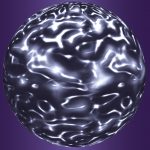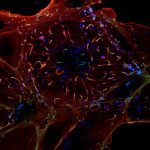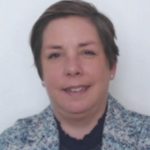PhD position available at the Institut Pasteur in the team Membrane Biochemistry and Transport
The hallmark of many neurodegenrative diseases such as Parkinson’s and Alzheimer’s disease is the accumulation of protein aggregates within neurons and in the extracellular space of neural tissues. The formation of such aggregates is caused by mutations in proteins such as Tau or alpha-synuclein that trigger their misfolding and aggregation.
But every cell of the human body has a very efficient recycling system, called autophagy, that is capable of degrading such protein aggregates very efficiently. In many neurodegenerative diseases this recycling system is non-functional or severely impaired. We would like to understand how this recycling system works and why its impairment contributes to the development of neurodegenerative diseases. This knowledge is essential to identify new and innovative treatment options to cure such diseases.
To understand the function of autophagy in neurons, we are combining in vitro reconstitutions and in vivo experiments in neural stem cells and primary neurons. One aspect of our work is thus the purification of proteins and their assembly at model membranes to rebuild the formation of autophagosomes in the test tube. The other aspect is related to characterize these proteins in vivo using fluorescent microscopy such as total internal reflection microscopy, fluorescence lifetime imaging and super-resolution microscopy. We are combining these techniques with electron microscopy including correlative light electron microscopy and tomography.
We can offer a number of different scientific projects for PhD students and postdocs with a focus on in vitro reconstitutions or in vivo experiments. Interested candidates should send their CV, a motivation letter and the contact details of two to three referees to Thomas Wollert (Membrane Biochemistry and Transport, Institut Pasteur Paris
(thomas.wollert@pasteur.fr).”
Opportunité de Doctorat et de Postdoc à l’Institut Pasteur au sein de l’équipe Biochimie Membranaire et Transport
Les pathologies neurodégénératives telles que les maladies de Parkinson et Alzheimer se caractérisent par l’accumulation d’agrégats protéiques au sein des neurones et de la matrice extracellulaire des tissus neuraux. La formation de ces agrégats est due à des mutations de protéines comme la protéine Tau ou l’alpha-synucléine qui engendrent un repliement erroné des protéines et leur dégradation.
Chaque cellule du corps humain dispose cependant d’un système de recyclage très efficace appelé autophagie, capable de dégrader de tels agrégats protéiques de manière très efficace. Dans beaucoup de maladies neurodégénératives, ce système de recyclage n’est pas fonctionnel ou sévèrement compromis. Nous cherchons à comprendre comment ce système de recyclage fonctionne et pourquoi son dysfonctionnement contribue au développement de pathologies neurodégénératives. Cette connaissance est essentielle à l’identification et l’innovation de nouvelles options de traitements des maladies neurodégénératives.
Afin de comprendre la fonction autophagique dans les neurones, nous combinons des reconstitutions in vitro à des expériences in vivo dans les cellules souches neurales et neurones primaires. Un des aspects de notre travail est donc la purification et l’assemblage de protéines sur des modèles de membrane pour reconstituer la formation des autophagosomes en éprouvette. Un autre aspect de notre recherche est lié à la caractérisation des protéines in vivo en utilisant la microscopie à fluorescence telle que la microscopie de fluorescence par réflexion totale interne (TIRF), la microscopie d’imagerie en temps de vie de fluorescence (FLIM) et la microscopie à super-résolution. Nous combinons ces techniques à de la microscopie électronique, y compris la microscopie à lumière corrélative et microscopie électronique (CLEM) et la tomographie.
Nous proposons différents projets scientifiques pour les candidats ayant un intérêt pour les reconstitutions in vitro ou les expériences in vivo. Les candidats intéressés devront envoyer un CV, une lettre de motivation ainsi que les coordonnées de deux à trois référents à Thomas Wollert (Biochimie Membranaire et Transport, Institut Pasteur, Paris ; thomas.wollert@pasteur.fr).



